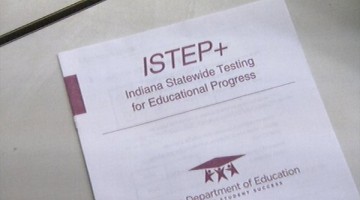by Abdul-Hakim Shabazz
While Easter Sunday might be about resurrection, Sunday is also 4/20—a high holiday (pun intended) for marijuana legalization advocates. And believe it or not, Indiana’s been inching toward the green light, even if it still pretends to be the sober cousin at the family reunion.
Let’s start with the basics: craft hemp flower. This session, lawmakers passed regulations surrounding its production and sale. It’s not weed, but it’s weed-adjacent enough to make regulators sweat and entrepreneurs hopeful. While you won’t get high off it, its legalization signals a subtle shift in Indiana’s stance toward the broader cannabis industry.
Then there was the House bill aiming to prevent police from arresting individuals solely for testing positive for THC. Sounds reasonable, right? After all, THC can stay in your system for days or even weeks after use. The bill sailed through the House with broad support—a bipartisan surprise. But the Senate gave it the cold shoulder, letting it die quietly without so much as a floor debate.
And let’s not forget 2021, when Indiana lawmakers quietly passed a law that says if you’re involved in a car crash, and test positive for THC, but didn’t cause the crash or show signs of impairment—you’re off the hook for an OWI charge. That was a pretty big deal, especially in a state where weed is still very much illegal.
Which brings us to the elephant in the Statehouse: money. More specifically, the $2.4 billion projected revenue shortfall Indiana is facing over the next two years. It’s the kind of budget hole that gives lawmakers migraines and makes every sacred cow a potential steak.
When asked if “everything” was on the table to close that gap, lawmakers initially said yes. But when we followed up—casually suggesting marijuana tax revenue as a potential $200 million per year infusion—the tone shifted. Suddenly, it was “almost everything” was on the table.
To be fair, it’s a tricky political sell. Making major policy decisions based solely on tax revenue projections can be risky, especially when the social and legal implications are so complex. And Indiana tends to lean conservative on these matters. But the conversation is clearly evolving.
Behind closed doors, we’re hearing that legalization is being discussed more seriously than ever before.
It helps that neighboring states are moving forward. Illinois and Michigan already have recreational marijuana. Ohio joined the party recently, and even Kentucky passed medical marijuana legislation. That leaves Indiana looking increasingly out of step, surrounded on nearly all sides by states that have figured out how to tax a plant for public benefit.
But not everyone is on board. Law enforcement groups in Indiana remain firmly opposed to legalization, echoing the same concerns raised in other states: fears about increased impaired driving, youth access, and the potential for black market activity to persist even in a regulated environment. Police unions and sheriff associations have voiced resistance, arguing that legalization could make enforcement more complicated, not less.
Add it all up: legislative baby steps, mounting fiscal pressure, regional trends, and deep-rooted institutional resistance. That’s not a guarantee, but it’s not nothing either. Indiana might not be racing toward legalization, but the wheels are definitely turning.
So while you’re dyeing eggs or prepping ham this Easter weekend, don’t be surprised if cannabis comes up around the table. It might still be taboo in some circles, but in the back rooms of the Statehouse? It’s starting to sound like policy.
Pass the jellybeans—and maybe an edible.
Abdul-Hakim Shabazz is the editor and publisher of Indy Politics.











